Innovative Research
Hogan and his students used bacterial viruses to identify peptides, or small proteins, that would bind to a target protein with high affinity in the blood of women with ovarian cancer.
The long-term goal of the research is to find a diagnostic that could become part of routine bloodwork for women aged 50 and older. And most importantly, the test could be accessible and affordable to women around the world.
“I’m pursuing a career in public health to help women take care of themselves and to feel taken care of by their health care system,” says O’Connor, who was also a recipient of the full-tuition Presidential Catholic Schools Scholarship and class president. “This project was the perfect step toward that goal.”
The process included a substantial amount of trial and error: Although the bacterial viruses they used came with specific protocols from the manufacturer, the students often had to rewrite their own steps when they encountered obstacles—such as not having the specific equipment that was used in the manufacturer’s protocols. Looking back, Hogan says this became a blessing in disguise.
“Troubleshooting within a lab setting is how students learn best,” explains Hogan. “It forces students to understand the material and create methodologies that don’t exist elsewhere.”
And it worked. The MicroGirls’ problem-solving led to the creation of Regis-based protocols that could help future researchers at Regis and beyond. And because a diagnostic for ovarian cancer does not currently exist, their results were even more meaningful and promising.
“We were able to isolate a small protein that binds to the oncology target, which is the first step in creating a diagnostic,” says Barry. “When we realized the progress we were making, it motivated us to spend those extra hours in the lab.”
Strong Support System
The independent study required long hours and working during spring break, snow days, and birthdays. That time together allowed the students to learn each other’s strengths and weaknesses—and how to support each other effectively in the lab.
“We had such a strong group dynamic and really trusted each other,” Barry says. “We knew what we had was special and no other place besides Regis could foster the relationships, knowledge, and growth that occurred over that year. Without that, I don’t think we would have had the success that we did.”
Morel, who openly admits she was nervous to start working in the lab, is grateful for The MicroGirls, who helped her face her fears and pushed her to her limit.
“We were all rooting for each other,” Morel says. “Having that type of support, particularly all-female support, is rare. We were lucky enough to have found it.”
It ties back to the guiding values of the Sisters of St. Joseph to care for the dear neighbor without distinction and to provide gracious hospitality.
“Regis students are very human; being supportive of each other is just natural to them,” Hogan says. “It is unparalleled to anything I have seen before.”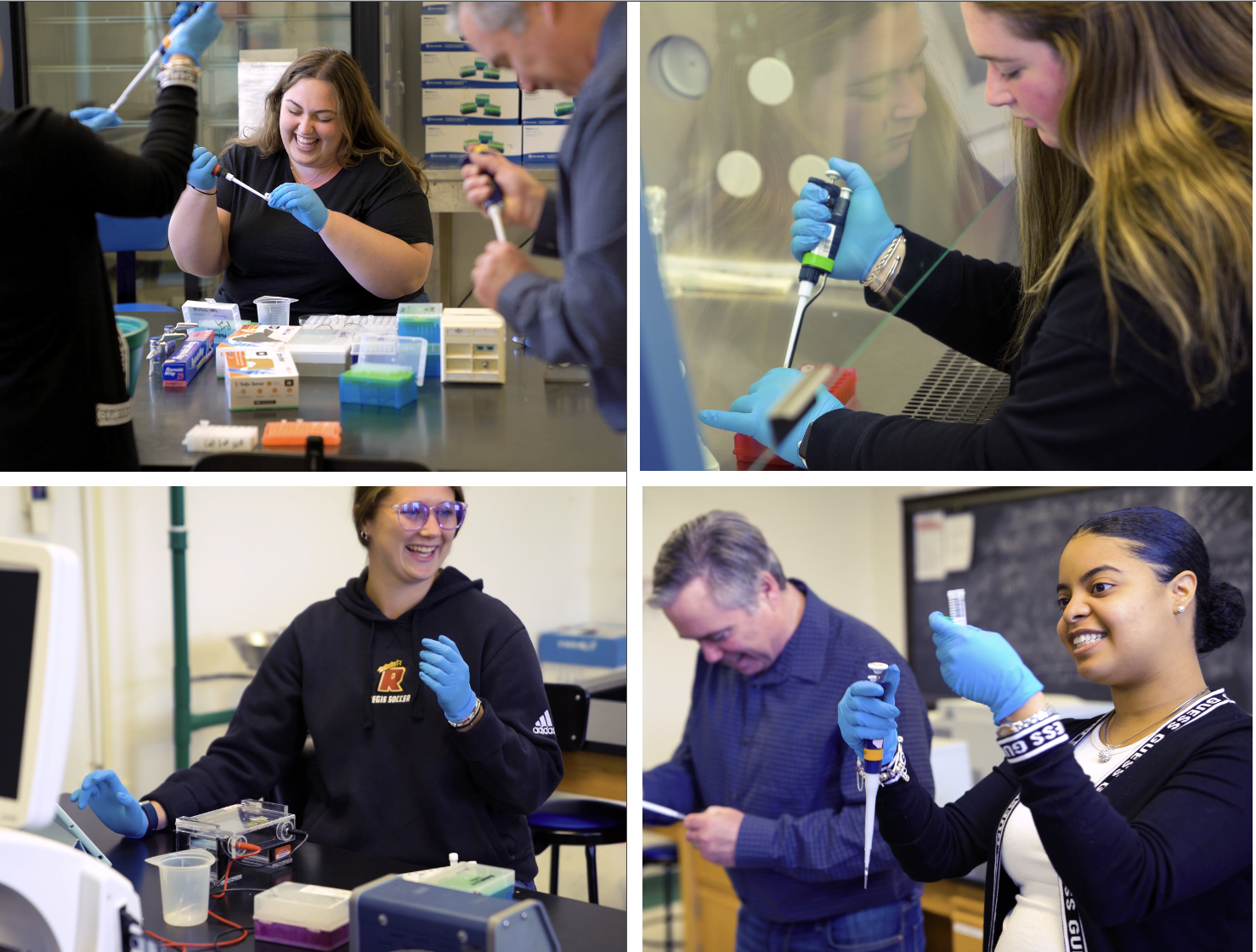
Pictures: The MicroGirls working together in the Watson- Hubbard Science Center with Assistant Professor Shannon Hogan, PhD. Clockwise from top left: Caroline O’Connor ’22, Hanna Barry ’22, Maryah Morel ’22, and Oriana Attridge ’22.
Success is a Journey
By the end of the spring 2022 semester, The MicroGirls had identified two potential peptides that could bind to the ovarian cancer target—a huge accomplishment on its own and one not to be overlooked. Ultimately the binding wasn’t strong enough to be used in a large-scale blood test, but the research is continuing at Regis with a new group of students.
“If science always worked, there would not be cancer,” Hogan says. “For our students, the experience itself was just as important, if not more, than the end results. But our results were a great step forward, especially as we continue and expand this research at Regis.”
In fall 2022, six new students picked up the ovarian cancer research with a new library of bacterial viruses—building off the protocols forged by The MicroGirls. The new cohort is focusing on a particular set of steps, that if altered successfully, could increase the chances of identifying a peptide that is so specific it could be used in a blood test.
“No one thought we would get as far as we did,” Morel says. “But because we persisted, because we were motivated, because we believed—in each other and the research—we were able to see results.”
Competitive Edge
Being part of Hogan’s research offered the students real-world experience that helped them stand above the competition when they applied to graduate programs or employment.
“Our undergraduate research programs at Regis are akin to what many students study as part of a doctorate program,” says Regis President Antoinette M. Hays, PhD, RN. “The research underway at Regis will change lives— and potentially save lives—and our outstanding faculty empower our students to succeed at Regis and beyond.”
And The MicroGirls are no exception: All four students were offered prestigious positions following graduation (see “Where are they now?” sidebar below).
“Without this independent study, I would not have had the level of confidence in my lab abilities, as well as working with a team, when I applied for a job as a research assistant at Aktis Oncology,” says Barry, who accepted the position and started in May 2022. “I am grateful that Regis provided an inclusive space for me to learn the valuable skills needed to start my work in industry. The fact that I am now fulfilling my dream to play a role in the discovery and development of treatments for cancer is surreal.”
And as it turns out, Attridge made quite an impression during that interview at the Telfer Lab. So much so that she landed one of just two positions in the UMass Amherst program. She turned down a spot in the master’s program at Tufts University Cummings School of Veterinary Medicine to pursue her new passion for research.
“If not for my cancer research at Regis, I don’t think I would have even been considered for this program,” says Attridge. “I am so honored and excited to have the opportunity to work with Dr. Telfer and develop my skills in the lab and continue to grow as a rising scientist.”
Over the course of the research, Hogan witnessed his students gain confidence and self-assurance that cannot be taught in a classroom or by reading a textbook. “It must come from experience,” he says. A proud moment is when Barry looked at him and said, “Hey, I’m really good at this.”
His reply? “Welcome, scientist.”
THE MICROGIRLS: WHERE ARE THEY NOW?
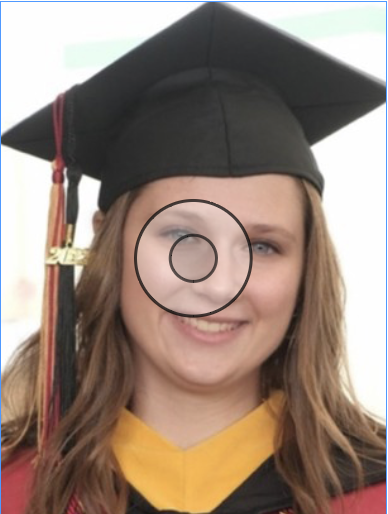 Oriana Attridge ’22 was one of two students accepted into a fully funded master’s-to-doctoral position in Dr. Janice Telfer’s lab at UMass Amherst, where she will have the opportunity to work on recognition structures involved in gamma delta T cells and cancer targets for her graduate research. Attridge also was accepted into Tufts University but chose to follow her passion for research.
Oriana Attridge ’22 was one of two students accepted into a fully funded master’s-to-doctoral position in Dr. Janice Telfer’s lab at UMass Amherst, where she will have the opportunity to work on recognition structures involved in gamma delta T cells and cancer targets for her graduate research. Attridge also was accepted into Tufts University but chose to follow her passion for research.
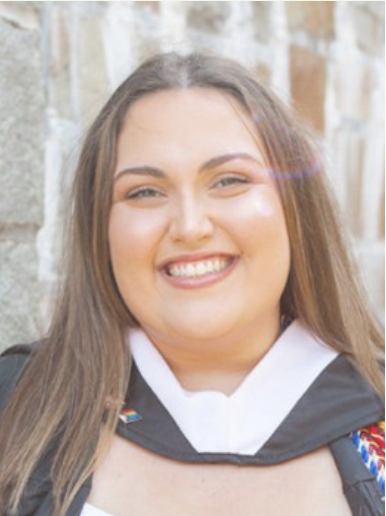 Caroline O’Connor ’22 is attending Columbia University for her master’s degree in public health in epidemiology and a certificate in child, youth, and family health. After completion, she hopes to have a career implementing data-driven interventions for the protection of vulnerable populations.
Caroline O’Connor ’22 is attending Columbia University for her master’s degree in public health in epidemiology and a certificate in child, youth, and family health. After completion, she hopes to have a career implementing data-driven interventions for the protection of vulnerable populations.
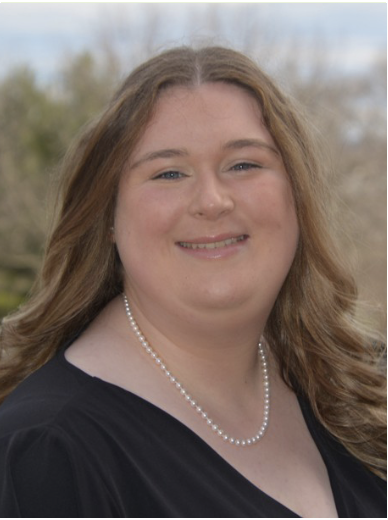 Hanna Barry ’22 is a research associate at Aktis Oncology, where she works with the lead discovery team trying to identify new leads that will one day provide a powerful treatment option in advanced stage solid cancers with distant metastases. The focus is not only to confer a breakthrough efficacy but also to enhance safety to overcome the challenges of conventional cancer treatment.
Hanna Barry ’22 is a research associate at Aktis Oncology, where she works with the lead discovery team trying to identify new leads that will one day provide a powerful treatment option in advanced stage solid cancers with distant metastases. The focus is not only to confer a breakthrough efficacy but also to enhance safety to overcome the challenges of conventional cancer treatment.
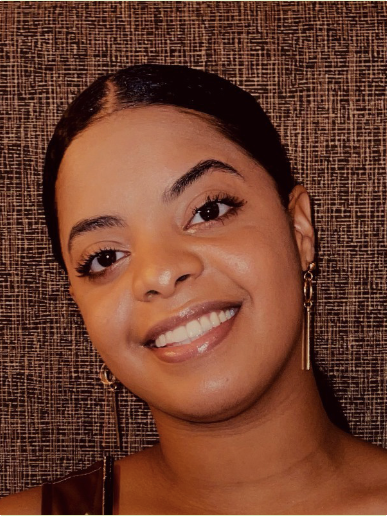 Maryah Morel ’22 is currently studying for her MCAT and applying to schools for fall 2023 where she plans to study osteopathic medicine. She is also working at Emerson Hospital Urgent Care as a medical assistant where she has the opportunity to shadow doctors and make connections with patients.
Maryah Morel ’22 is currently studying for her MCAT and applying to schools for fall 2023 where she plans to study osteopathic medicine. She is also working at Emerson Hospital Urgent Care as a medical assistant where she has the opportunity to shadow doctors and make connections with patients.
Watch the video below to learn more about the MicroGirls.